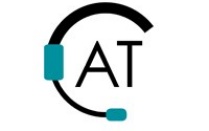Full Citation
Klenk, N. L. and G. M. Hickey (2013). "How can formal research networks produce more socially robust forest science?" Forest Policy and Economics 37: 44-56.
Research notes: Cites #7 Hetzner, W. A., Gidley, T. R., & Gray, D. O. (1989). Cooperative Research and Rising Expectations: Lessons from NSF's Industry/University Cooperative Research Centers. Technology in Society, 11(3), 335-345.
Format: Peer-reviewed article
Type: Survey
Experience level of reader: Fundamental
Annotation: Research networks which work only with peers are not positioned to produce socially robust scientific discoveries. Socially robust science is defined as knowledge that is valid scientifically as well as useful in a practical way that is not necessarily valued academically.
Setting(s) to which the reported activities/findings are relevant: University
Knowledge user(s) to whom the piece of literature may be relevant: Researchers, Intermediaries.
Knowledge user level addressed by the literature: Basic
This article uses the Commercial Devices and Services version of the NtK Model
Primary findings
Barriers
- Categorizing various actors only according to profit-seeking and not-for-profits does not help scholars to understand their respective motivations for social or economic development goals.
Survey findings
Occurrences within the model: NtK Step 2.1 - Besides the actual cost of supporting participation, members and would-be members report other barriers to participating in research networks: burden of reporting, insufficient time to participate, reputational costs, and opportunity costs.
Survey findings
Occurrences within the model: NtK Step 2.3
Carriers
Actors in networks can include other organizations beyond universities such as unions, aboriginal groups, foundations, individuals or other invested non-governmental groups.
Survey findings
Occurrences within the model: NtK Steps 2.2, 3.2
Knowledge sharing networks can attract participants for reasons other than the explicit mission of the project:
- In response to being personally invited
- To seek funding opportunities
- For access to other facilities and equipment
- To support graduate students
- To recruit more researchers
- To disseminate best practices
- To support the projects’ cause for ideological reasons
- To gain individual knowledge and experience
Survey findings
Occurrences within the model: NtK Steps Step 1.3, Step 4.1, Step 4.6; Tip 4.2, Tip 4.9
